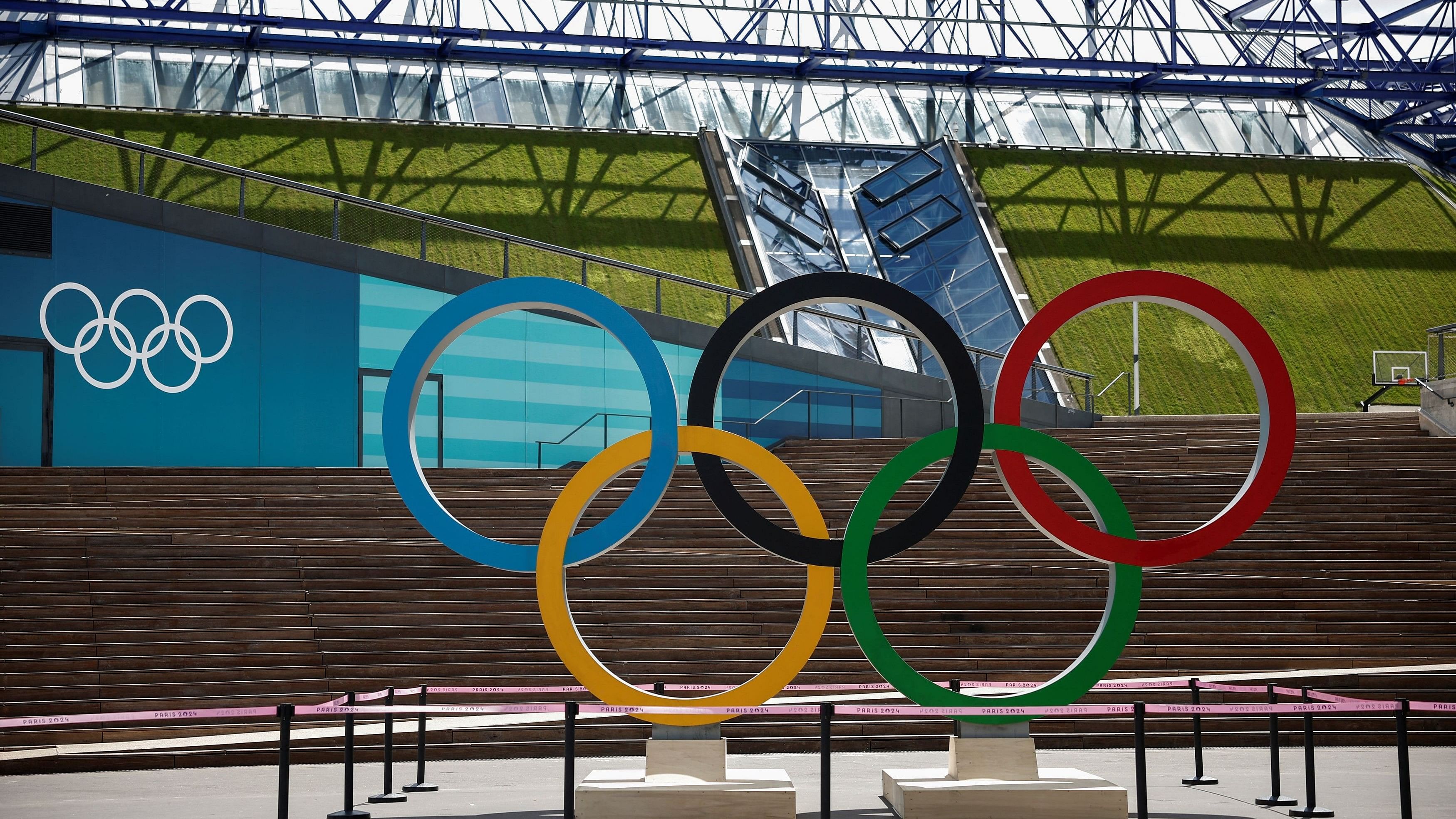
Olympic rings are displayed in front of Bercy Arena, Paris.
Credit: Reuters File Photo
A new scoring system and the absence of Russia have created a seismic shift in artistic swimming, promising a more exciting show at the 2024 Paris Olympics and anticipation that -- for the first time in a long time -- gold is virtually anyone's for the taking.
One thing that has not changed is that, despite World Aquatics' bold move to allow men to take part, the competition remains 100 per cent female as no country included men in their squads.
Russia have taken gold in both the team and duet events at each of the last six Olympics, an astonishing streak that stretches back to the 2000 Sydney Games but ends in France as Russia and Belarus are not admitted following the invasion of Ukraine in February 2022.
But the podium at non-Olympic international events has also seen a change thanks to new scoring criteria meant to remove subjectivity in judging.
"It is very, very, very far from the feathered caps of Hollywood cinema," Adam Andrasko, the CEO of USA Artistic Swimming, told Reuters. "It is now on par with, let's call it gymnastics or figure skating in the water."
Artistic -- formerly known as synchronised -- swimming, followed the lead of figure skating, which overhauled its scoring system after a judging scandal at the 2002 Salt Lake Olympics.
Much like figure skating, the new, more mathematically-based scoring includes required elements with degrees of difficulty. A separate panel of judges scores on artistic impression, such as choreography and musicality.
"Our team have been very instrumental in really elevating and challenging the system to make sure the sport was exciting and entertaining," said Andrasko.
"So, what you're going to see now looks absolutely nothing like what you saw at the last Olympic Games. It is dramatically faster. It's dramatically higher flying. There's so much more creativity in routines.
"I don't want to dismiss the work that was done by anybody prior to these Games. But because of the degree of difficulty system, it now allows coaches to challenge that system and push the limits, like you see in many other sports."
China are the team to beat after topping the medals table at this year's World Aquatics Championships, with the United States finishing second and Australia third.
"We're going to put performances and scores up that could compete (for gold) if we swim very well," Andrasko said of the Americans' chances. "The Chinese are the best in the world, so it might even be a scenario where they have a bobble in their routine and that is sport to its purest."
The U.S. was considered the one team that would feature a male swimmer but the federation left 45-year-old pioneer Bill May, a member of their silver-medal winning team at the 2023 worlds, off their squad, ensuring no men will compete in Paris.
Italy's decision to leave Giorgio Minisini, one of the sport's most talented men, out of their Olympic plans also drew criticism from many in the sport.
"This should have been a landmark moment for the sport," World Aquatics, who announced in 2022 that each country could include two male swimmers in the team event, said in a statement. "All of us in the artistic swimming community need to work even harder to progress opportunities for male athletes in the sport.
"We are absolutely determined that there will be male artistic swimmers in the team competition at Los Angeles 2028, and we also continue to work on a proposal to add a mixed duet competition to the Olympic programme."
Canada once regularly finished among the Olympic medallists, and Kerri Morgan, Artistic Swimming Canada's chief sport officer, applauds the recent changes as well.
"It's exciting for countries to be talking about their medal potential, where that didn't necessarily happen in the past," Morgan told Reuters. "It felt very much like you knew who the winners were going to be before it started.
"It really is anybody's game."